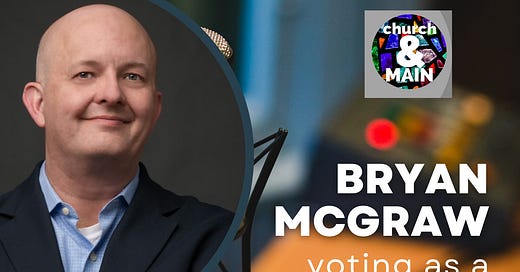Episode 176: Voting as a Moral Act with Bryan McGraw
NEW PODCAST: How do our votes shape our democracy?
Voting is not an easy task — nor should it be. Although Americans' individual votes rarely appear to have an impact, voting remains one of their most important civic responsibilities. Rather than adopting a disengaged cynicism, citizens have the freedom to vote sincerely and make their voting an expression of their most basic moral commitments.
-Bryan McGraw, How to Think About Voting
The act of voting is one of the most significant ways we express our hopes, dreams, and ethical convictions, or at least, it should be. In our newest podcast episode, we delve into the complexities and moral considerations that come with casting our ballots.
The episode features Bryan McGraw, an associate professor at Wheaton College, as they examine the delicate balance between voting strategically and voting sincerely. With negative partisanship at an all-time high, where efforts to block the opposition can eclipse our party's own agenda, the episode asks us to consider: How do our votes shape our democracy, and how can we ensure they stand as a testament to our ethical beliefs?
We also take a deep dive into negative partisanship's impact on voting behavior. With campaigns increasingly hinging on demonizing opponents rather than championing constructive policies, voters are often left with a choice that feels less about advocacy and more about aversion.
We wrap up with practical advice, exploring alternative voting methods, such as ranked-choice voting, which might encourage a more reflective and conscientious voting process.
Listen to the full episode for a more comprehensive understanding of the complexities of voting and join the conversation on what it means to be an ethical voter in today's partisan era.




